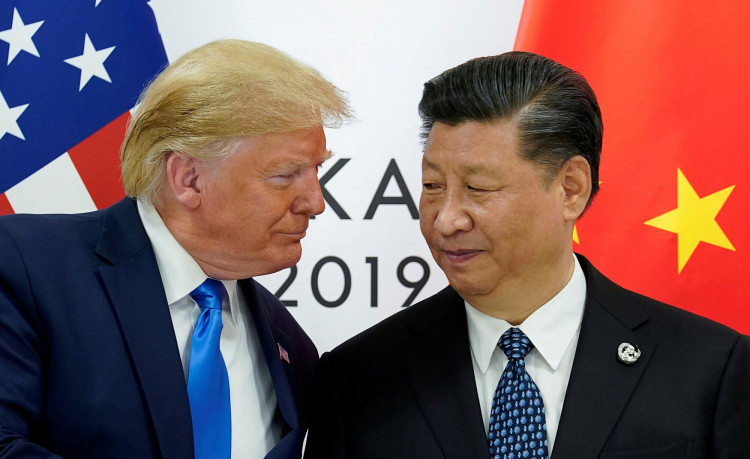China confirmed Thursday that it is not engaged in any trade negotiations with the United States and insisted that Washington must first remove all unilateral tariffs for dialogue to resume. The remarks came in direct response to U.S. President Donald Trump's recent claims suggesting active discussions were underway and that tariff levels on Chinese imports could "come down substantially."
There are "absolutely no negotiations," a spokesperson for China's Ministry of Commerce told reporters, according to CNBC. In a separate briefing, ministry spokesman He Yadong added: "Any claims about the progress of China-U.S. trade negotiations are groundless as trying to catch the wind and have no factual basis."
The pushback followed an increasingly mixed message from the Trump administration. On Tuesday, Trump told reporters he might ease the 145% tariffs currently applied to Chinese goods and added, "We're going to live together very happily and ideally work together." The next day, Treasury Secretary Scott Bessent said the trade war was "unsustainable" and suggested a resolution could take years.
But Beijing has refused to budge. "The unilateral tariff increase measures were initiated by the United States," He said. "If the United States really wants to solve the problem, it should... completely cancel all unilateral tariff measures against China, and find ways to resolve differences through equal dialogue."
Since the tit-for-tat escalation began, China has responded with its own 125% tariffs on U.S. goods, filed complaints with the World Trade Organization, and restricted critical exports, including rare earth minerals vital to U.S. defense and electronics sectors.
While Washington has extended temporary tariff reprieves to several allied nations, China has been excluded from any grace period, intensifying the economic standoff. Meanwhile, major U.S. retailers warned the White House this week of impending inventory shortages, and port authorities reported sharp declines in incoming cargo.
Market reaction was swift. U.S. stock futures dipped Thursday, the dollar weakened, and gold resumed its rally as investors sought refuge amid growing uncertainty.
"This volatility is likely to continue until we get a clearer policy outlook from both the Trump administration and China," said David Miller, chief investment officer at Catalyst Funds.
Despite faint signals earlier this week that the White House might reconsider some tariffs on Chinese auto parts, the Chinese government made clear that nothing short of a full reversal of the U.S. measures would be acceptable.
Without tangible steps from Washington, Beijing said, talk of reconciliation is premature. "China's position is consistent and we are open to consultations and dialogues," said He. "But any form of consultations and negotiations must be conducted on the basis of mutual respect and in an equal manner."






